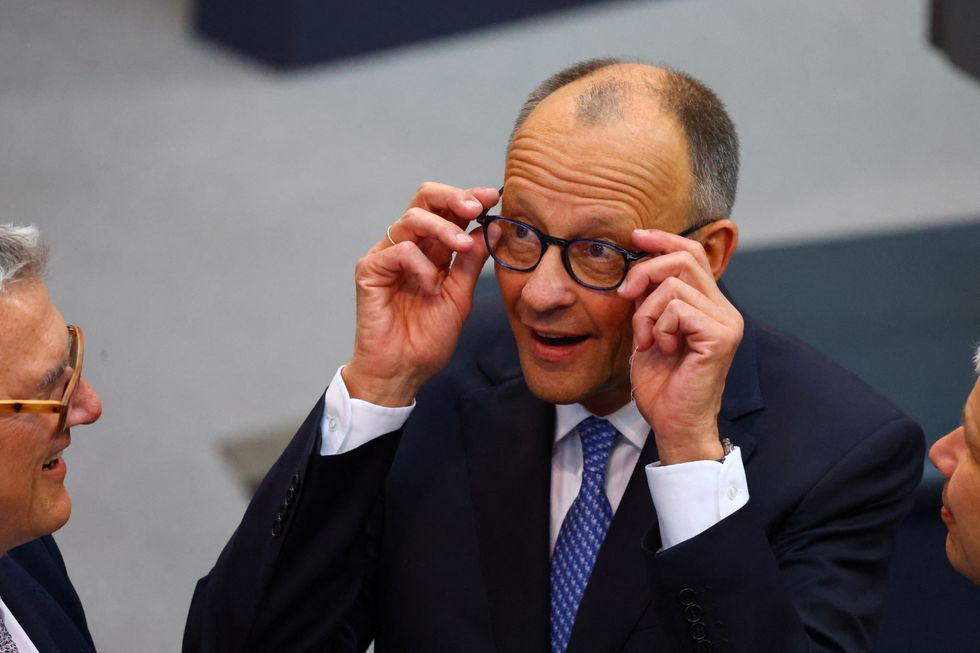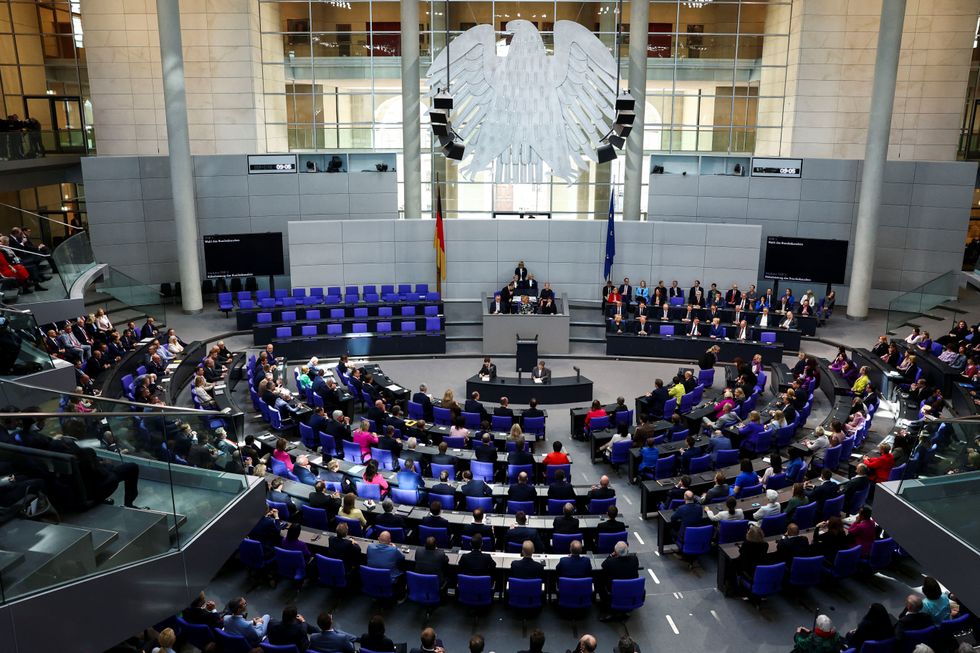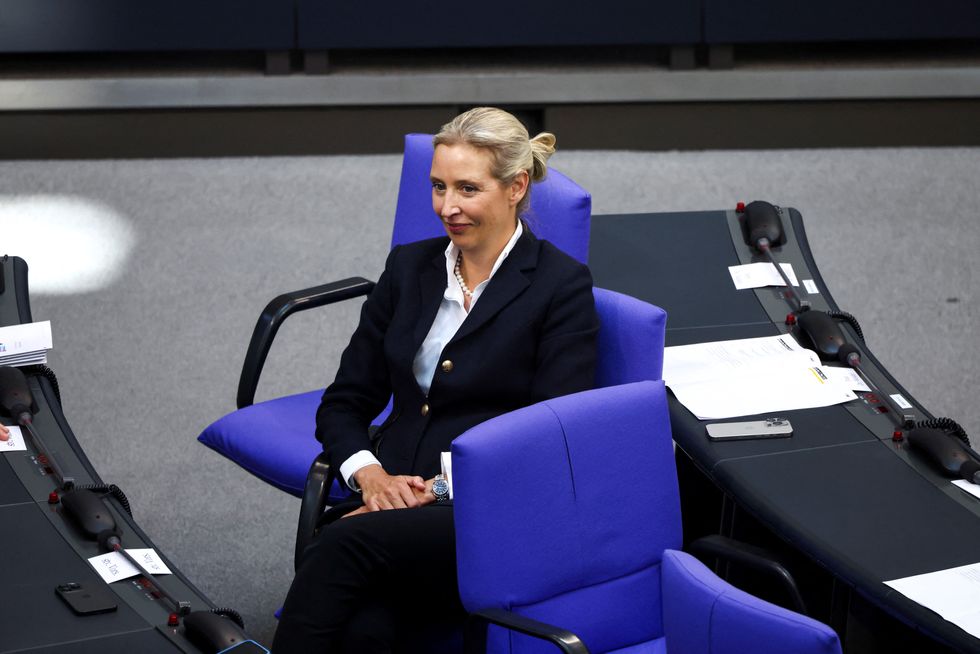Germany’s Friedrich Merz suffers embarrassing blow as he fails to secure majority in Chancellor vote
WATCH: Michael Portillo and Rob Hyde discuss the election in Germany
|GB News

The leader of the CDU fell shy by just six votes to form a majority in the Bundestag
Don't Miss
Most Read
Latest
German conservative leader Friedrich Merz has failed to gain a parliamentary majority needed to become new Chancellor in the first round of voting.
Merz's CDU party won a federal election in February and since secured a coalition deal with the centre-left Social Democrats (SPD).
However, they won just 310 votes in the lower house of parliament, falling just shy of the 316 needed for a majority. It is the first time since 1949 that a candidate has lost the first round of voting.
The Bundestag now has 14 days to elect Merz or another candidate chancellor with an outright majority. Alternative for Germany co-leader Alice Weidel is demanding Merz's resignation and is calling for a new set of elections.

Friedrich Merz of the Christian Democratic Union (CDU) fell shy of just six votes
|Reuters

Designated German Chancellor Friedrich Merz of the Christian Democratic Union (CDU)
|Reuters

A general view shows a session of the German lower house of parliament Bundestag
|Reuters
Local media reports the Bundestag will not hold a second chancellor vote today, meaning the political stalemate that has held Berlin since February's elections rumbles on.
Merz's conservatives won national elections with 28.5 per cent of the vote. However, it was not enough the form a majority election on their own and therefore would require the support from another party.
Earlier this week, the CDU party signed a coalition deal with the centre-left Social Democrats, who won just 16.4 per cent in their worst result in German post-war history.
The pressure is on for Merz to show leadership after the implosion last November of outgoing SPD Chancellor Olaf Scholz's three-way coalition and the rise of the hard-right wing AfD.
LATEST DEVELOPMENTS FROM BERLIN

Co-Leader of the Alternative for Germany (AfD) Alice Weidel
|Reuters
Sudha David-Wilp of the German Marshall Fund of the United States said: "People have been asking Germany to lead for a long time, and there is no more space to not heed that call.
"Everything that had been undergirding post-war Germany in the past eight decades is no longer the case, whether it be open markets and free trade, whether it be the US security presence in Europe."
Merz, a veteran politician who started his career as a European lawmaker in the 1980s, has never held a government office. After losing a power struggle to arch party rival and eventual Chancellor Angela Merkel in 2002, he spent over a decade working in the private sector before finding his way back into the frontline of German politics.
Described by German political commentators, Merz is a "provocative economic liberal" who has pulled the bloc back to the right to counter former Chancellor Merkel.

German Bundestag President Julia Kloeckner
|Reuters
But with the AfD topping some recent polls, the new government's main challenge is clearly to restore confidence and trust in Germany’s political centre, said Carsten Brzeski, global head of macro at ING.
"If this government fails, the AfD will get more support in the next elections and could become part of any next government."
Meanwhile, Green Party politician Renate Künast said Merz was "massively weakened" after the election defeat, adding that today's result was "a thunderclap for the entire country."










